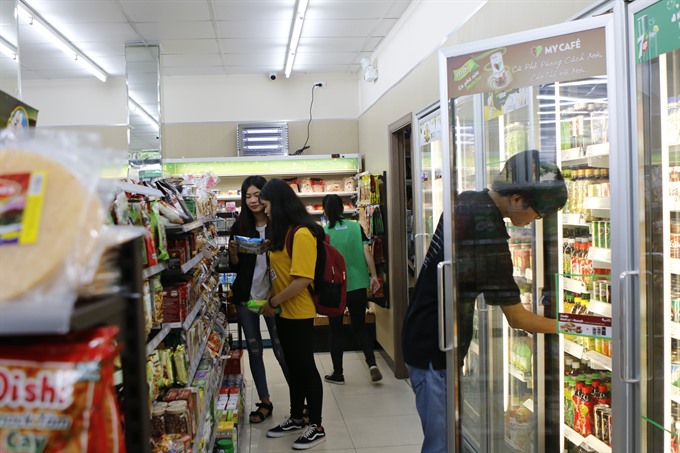Japanese enterprises proposed to Viet Nam to further reform administrative procedures for import goods, especially food.

Japanese enterprises proposed to Viet Nam to further reform administrative procedures for import goods, especially food.
Nakagawa Mikihisa, a representative of the Japan External Trade Organisation (JETRO), said this at a meeting held in HCM City on March 14. The meeting discussed solutions on dealing with difficulties in food trade activities of Japanese companies in Viet Nam.
The representative highly appreciated the Vietnamese Government’s administrative reforms for imported goods, including food. However, JETRO and Japanese businesses were eager to further reduce the frequency and timing of animal and plant quarantine.
Mikihisa said quarantine was extremely important to prevent the entry of pests and diseases, however, the testing of samples for each import had become an obstacle to bringing fresh food to the Vietnamese consumers.
He said the time for quarantine in Viet Nam was seven days for fresh meat and four days for vegetables and fruits, which was quite long. The required time for quarantine and storage in the cold storage at ports makes the food lose its freshness. Moreover, businesses must pay more for storage during quarantine.
Le Van May, director of the Hoa Sen Food Processing Company, said although the time for animal quarantine had reduced from nine days to three days, she expected a further reduction in the timing.
Fresh fish imported from Japan expire in three days. It takes five-six hours to transport the fish by air, which is then kept in cold storage. All stages take up to three days, which means the goods will expire, according to May.
Dam Xuan Thanh, deputy head of the Animal Health Department under the Ministry of Agriculture and Rural Development (MARD), said Viet Nam had applied the national single-window mechanism to accelerate administrative procedures.
Hoang Trung, director of MARD’s Plant Protection Department, said four days to test vegetables was too long as it would affect the quality.
According to curent regulations, testing of vegetables only needed four hours at the border gate and 10 hours on the sea if transported by airplane or ship, he said.
He further said that since the regulations were applicable at all border gates, JETRO needed specific proof of their violation so that the State offices could penalise the violators.
Japanese businesses also expect a reduction in the frequency of food inspection.
At the meeting, JETRO proposed to the Vietnamese Government to consider a reasonable reduction in the frequency of inspecting samples not only for meat used by export enterprises but also for meat, vegetables and fruits distributed within Viet Nam.
However, the Plant Protection Department said it was impossible to reduce the frequency of inspections. At present, Viet Nam’s procedure of food inspection is too easy compared to other ASEAN countries. So far, State agencies have conducted inspections according to existing regulations and standards, and no enterprises have complained.
Thanh said it was quite easy to import fresh food into Viet Nam compared to other countries. For fish and meat imported from Japan, Viet Nam has not had inspection for processes of raising and processing in Japan. Meanwhile, processed food of Viet Nam imported to Japan must pass a series of mandatory regulations. — VNS





